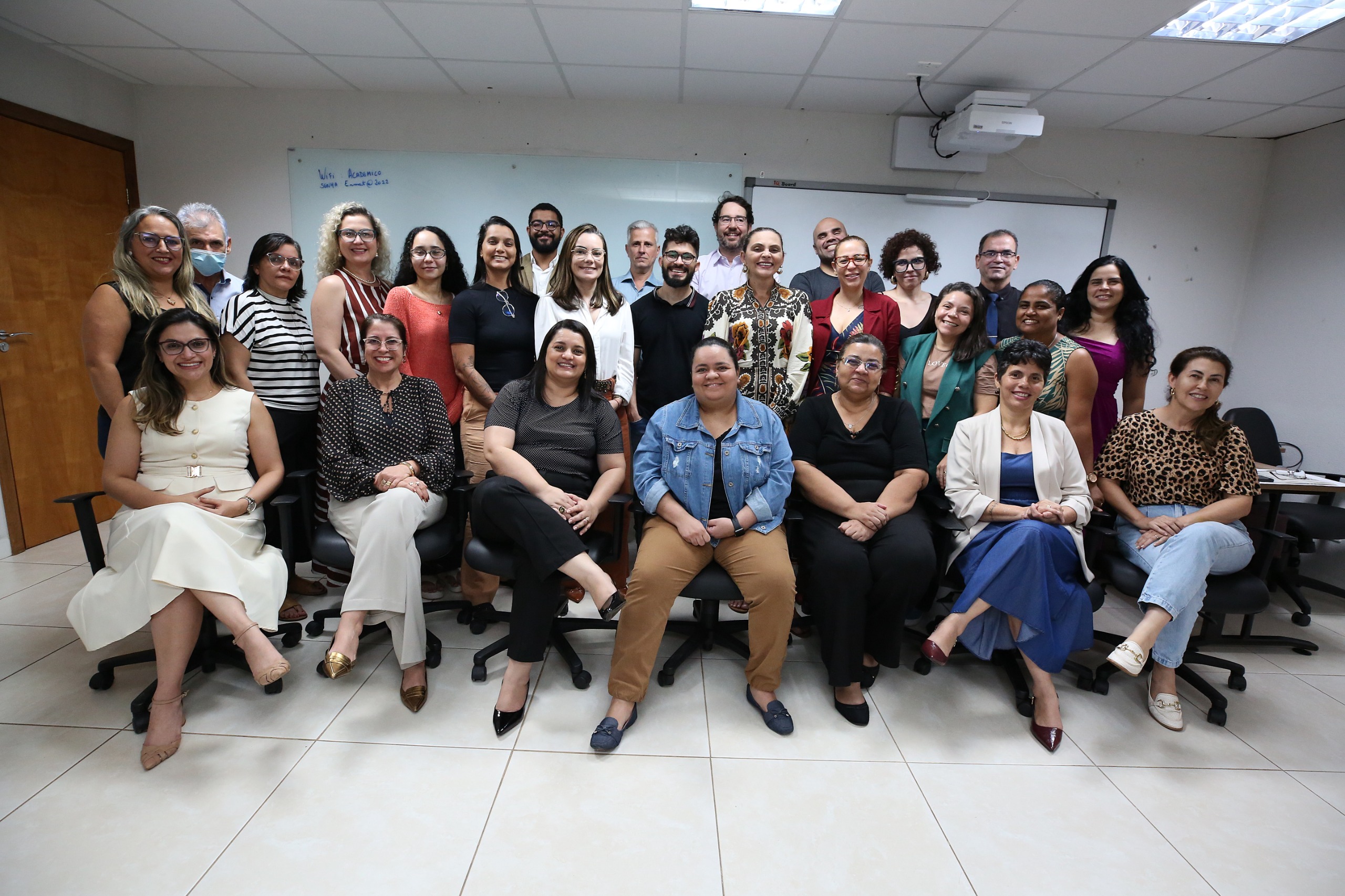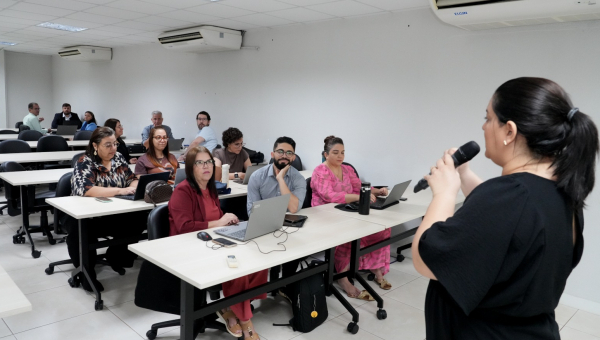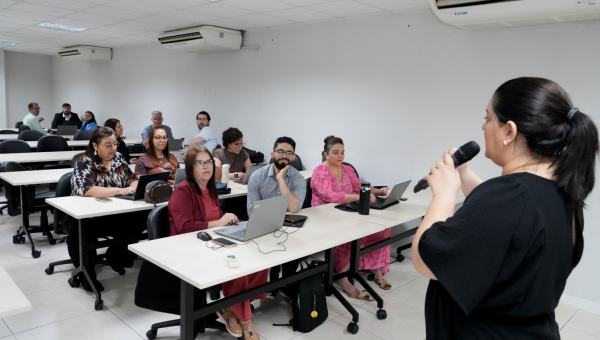
What will the role of the teacher be like in the coming years? This question is no longer for the future. It is already with us. Against a backdrop of fast transformations - social, technological and educational - the Superior School of the Judges of the State of Tocantins (Esmat) kicked off the face-to-face activities of the Lato Sensu Postgraduate Course in Educational Innovations for Teaching Practice on Thursday (April 24th).
Taught by Professor Lily Sany Silva Leite, the first module, which is part of the hybrid proposal of the course, focused on virtual and collaborative learning environments. Using active methodologies and the inverted classroom approach, the postgraduates were invited to experiment with new ways of teaching and learning - rethinking the role of the teacher in the face of artificial intelligence, the possibilities of online tutoring, building bonds in hybrid contexts and the use of technology as an ally of humanization.
“This group is very rich. We have people from various areas of knowledge, civil servers from the Judiciary and partner bodies, all very engaged. It was an encouraging start, with powerful exchanges,” said Professor Lily.
Starting online on April 7th, the postgraduate course has a 360-hour workload and it lasts until September, 2026. The course, coordinated by Judge Wellington Magalhães and Pedagogue and Linguistics Master Denise Sodré Dorjó, brings together magistrates, civil servers from the Judiciary of the state of Tocantins and professionals from institutions such as the State Prosecution, the Public Defender's Office, the Court of Auditors and the Federal Court.
“The proposal was born out of the institutional desire to strengthen pedagogical action with a focus on active methodologies, curricular innovation and technologies applied to learning. The commitment of Esmat is to train professionals who think of education as a tool for transformation. This requires sensitivity, but also technique, active listening, willingness to be new and openness to revisit old certainties,” said magistrate Wellington.
“With a focus on excellence in teaching practice, Esmat has carefully developed this postgraduate course to offer our judges and civil servers tools and reflections that will really make a difference in their work as educators. It's great to see them starting out on this journey, and I'm sure that the exchange of experiences and contact with our teachers who are experts in active methodologies will bear much fruit for their practice,” said Denise.
More than just a theoretical course, the postgraduate course aims to be a laboratory for training practices, with content ranging from AI-mediated assessment to the production of video lessons, hybrid teaching and project-based learning. It is an invitation to experiment, to listen and to reconstruct their own teaching practice.
During one of the dynamics, Lawyer and postgraduate George Oliveira, administrative director of the Superior School of Law of the state of Tocantins, commented with good humor on the spirit of the training when he said that
“Esmat, our Harvard of Tocantins, is already moving towards this futuristic perspective, with this postgraduate course and its training in artificial intelligence.”





_thumbnail_thumbnail.jpeg)
_thumbnail_thumbnail.jpeg)
_thumbnail_thumbnail.jpeg)

_thumbnail.jpeg)
_thumbnail.jpeg)
_thumbnail.jpeg)
